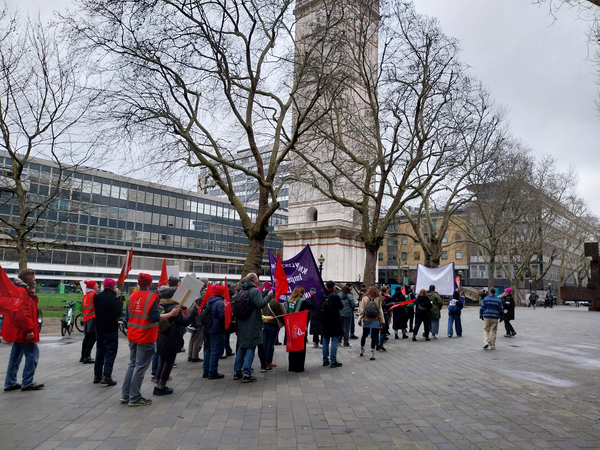What is so bad about fossil fuel companies, anyway?
Rhidian Thomas and Max Moynan discuss the things that the oil companies don't want us to know

Divest Imperial are calling on College to remove its investments from fossil fuel companies, but what exactly is so bad about fossil fuel companies, anyway? Most attention is given to their impact on the climate through their carbon emissions, but fossil fuel companies often make headlines (or conspicuously don’t) for altogether more sinister reasons. Many have a track record of human rights abuses and environmental lapses that would embarrass even the most hardened dictator.
Take, for example, Royal Dutch Shell (better known simply as Shell). For many years, Shell has conducted drilling operations in the Niger River delta region in Nigeria. Since around 15BC, the Ogoni people have lived and worked on this land; the arrival of Shell in the 1950s, however, turned the old order upside down. Their predominantly agricultural lifestyle became ever harder to maintain in the face of oil spills totalling millions of barrels (or approximately 40% of all of Shell’s oil spills between 1976 and 1991).
Understandably, residents began to question why Shell were being allowed to conduct operations in the area. After all, 85% of Nigeria’s oil wealth has benefited the top 1% of the population, with 70% of the country living on less than a dollar a day. The money, just like the oil, was flowing straight out of Nigeria. In response to the Ogoni peoples’ protests, Shell were ruthless, hiring members of the Nigerian military as a private defence force. Raids on villages in the area saw residents tortured, raped, and executed in brutal fashion, in an effort to discourage resistance to Shell’s expansion. All the while, Shell continued to employ the military, and as recently as 2010 was found to have paid an armed militia $159,000 to protect its oil infrastructure.
Unfortunately, Shell’s record is far from unusual in the sector. ExxonMobil, until recently under the leadership of US Secretary of State Rex Tillerson, offers another depressingly similar example. The parallels are uncanny; substitute Ogoniland in Nigeria for Aceh in Indonesia, and the story is pretty much unchanged. Members of the Indonesian military acting on behalf of Mobil (pre-merger) are alleged to have committed abuses of nightmarish sadism: shooting protesters in their kneecaps, administering electric shocks to their genitals, and even threatening them with pits of human heads.
As if that weren’t enough, ExxonMobil’s story has another dark chapter. Recent investigations have revealed that Exxon scientists were among the first to realise the implications of rising carbon dioxide levels, with some reports suggesting that their research indicated a warming planet as early as the 1950s. To their credit, the scientists insisted on the publication of their findings and Exxon acquiesced; by the mid-80s however, with the oil price falling, Exxon’s management performed a breathtaking U-turn. Over the next decades, Exxon became one of the most prolific funders of climate-sceptics, in a desperate attempt to undermine the research of their own scientists. Had it not been for their intellectual dishonesty and anti-scientific cowardice, who knows how much closer we’d be to addressing climate change. Imperial also has investments in a company which employs over 100,000 people, has revenue of around $50 billion each year and is worth more than McDonalds. It has consistently kept a low profile, due to it not owning any oilfields, excluding it from the Guardians divestment list, from the ‘Keep it in the ground’ campaign. Yet this company works with every major oil company to extract the oil from the ground. The company is Schlumberger and is far from a moral one.
In 2015 it was found that Schlumberger had employed staff working in the US and other US citizens to work on contracts in Sudan and Iran, something not allowed by US law. To prevent authorities uncovering this, the countries were referred to as “Southern Egypt” (Sudan) and the “Northern Gulf” (Iran). This was eventually uncovered and the company were dealt a $233 million criminal fine, the largest in US history for sanctions violations. The company had been dealt a light blow in comparison to the size of the company, and on receipt of the fine its shares rose 2%.
Schlumberger still operates today in some of the most challenging areas such as Burma, Libya and Turkmenistan. Simultaneously being self-aware of the issues, a recent company memo claimed that corruption in Turkmenistan is not as bad as in Kazakhstan or Azerbaijan – not exactly reassuring. Clearly the company focusses solely on itself and profits ahead of environmental or criminal issues.
Alternatively, one may look at our own President’s appointment to the board of directors of Chevron. The company is the second largest oil company in America behind ExxonMobil, and in recent years has been involved in a bitter environmental dispute in Ecuador, at one point lobbying the US government to impose trade restrictions on the country so that the lawsuit would be dropped. The case began in 1993 and continues to this day, overshadowing other controversies including an oil spill in 2011 off the coast of Brazil in which over 400,000 litres were spilt, and an oil rig explosion in 2012 in which two workers were killed.
Hypocritically, the company then launched a ‘Real Issues’ campaign designed to aid discussion of the important issues in the energy industry. They did this through a ‘Will you join us?’ forum – a clear attempt at greenwashing, as their CEO recently stated that he doesn’t agree with the policies intended to be implemented by the Paris Climate Accord. Presumably the company wants to retain a high level of output of oil and gas into the future as the world attempts to turn to renewables.
Collectively, shares in Shell, ExxonMobil and Schlumberger comprise nearly half of Imperial’s total fossil fuel investments, while Imperial’s chummy relationship with Chevron is embodied in our very own President. All parties seem to be able to agree on one thing: they’d much rather we didn’t look too closely at their murky past.








